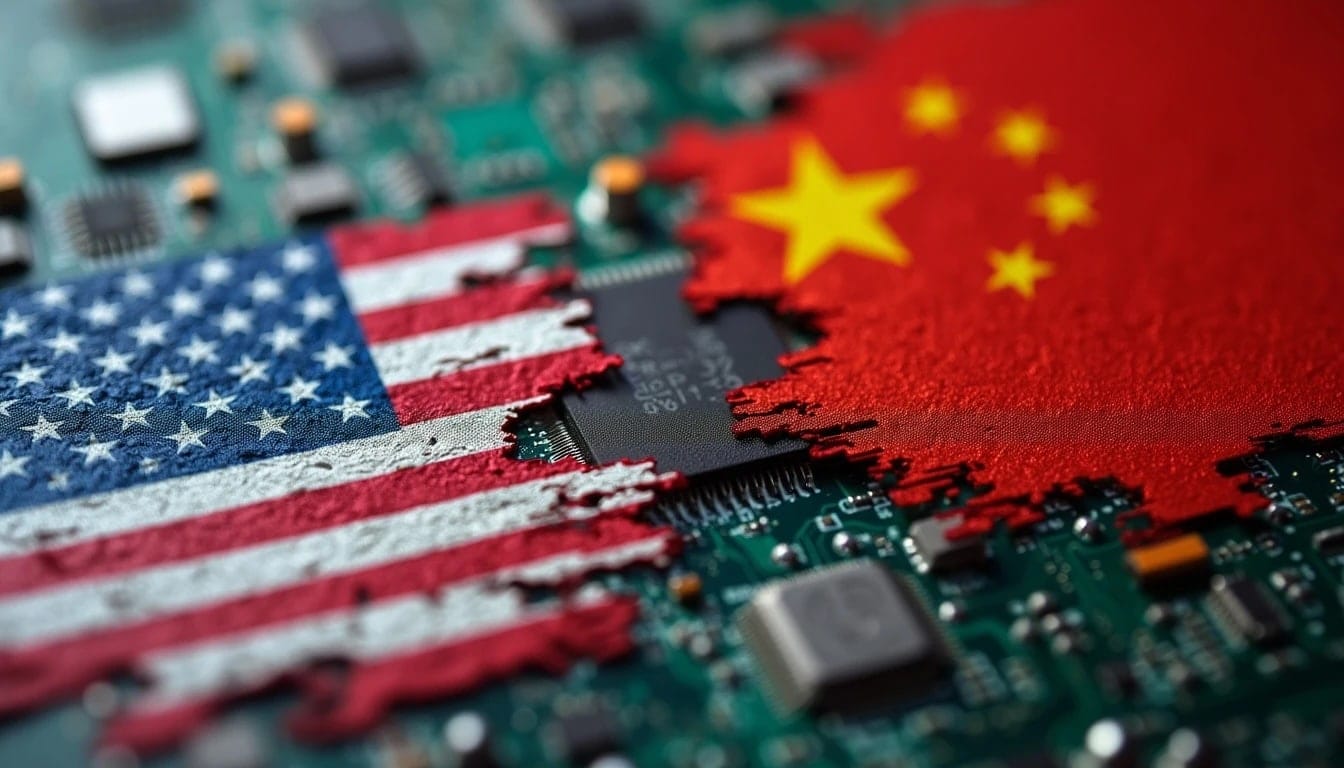Here’s the translation to American English:
In a move that intensifies the trade and technological war between the two largest economies in the world, China has announced a ban on the export of critical components for semiconductor manufacturing, such as gallium, germanium, and antimony, as well as ultra-hard materials. This decision comes a day after the United States tightened its own restrictions on the export of chips and related equipment to the Asian country.
Restrictions for “national security” reasons
The Chinese Ministry of Commerce justified the restrictions as a necessary step to safeguard national security interests and to meet its international commitments, including the non-proliferation of dual-use technologies. Furthermore, China has indicated that it will impose stricter controls on graphite, another essential material for technological production, and limit its use in U.S. military applications or for defense-related purposes.
“To protect national security interests and fulfill international obligations, China has decided to strengthen export controls on certain dual-use items to the United States,” the Ministry of Commerce stated in a press release.
China’s dominance in key materials
China plays a dominant role in the global production of these strategic materials. According to estimates, the country accounts for 94% of global gallium production and 83% of germanium. Both are essential components for advanced technologies, such as optical fibers, solar cells, and, especially, semiconductor manufacturing.
Germanium, in particular, is crucial for the development of fiber optic cables and solar panels, while gallium is widely used in electronic devices and advanced communication systems. Limiting these resources could significantly impact global supply chains, especially in the United States and other economies that rely on these materials.
The U.S. response
A day before China’s announcement, the U.S. Department of Commerce implemented new restrictions designed to further hinder China’s ability to produce advanced semiconductors. The measures include additional controls on 24 types of semiconductor manufacturing equipment and three software tools for their development, along with restrictions on high-bandwidth memory (HBM) usage. New guidelines for monitoring compliance and preventing diversions were also introduced.
Additionally, 140 companies were added to the Department of Commerce’s Entity List, preventing U.S. companies from doing business with them. Among the new additions are Chinese firms Piotech and SiCarrier, which specialize in semiconductor technologies.
In response, the China Internet Society urged domestic companies to reconsider their dependence on U.S. chips, describing Washington’s restrictions as an obstacle to the healthy and stable development of the country’s technology industry.
A conflict with global repercussions
This exchange of restrictions underscores the growing technological rivalry between China and the United States, with the semiconductor sector at the center. The chip industry is fundamental not only for computing and artificial intelligence but also for military and national security applications, prompting both countries to strengthen their strategies to control this critical resource.
The U.S. government, for its part, indicated that it is evaluating China’s restrictions and will take “necessary actions” in response. Although no specific measures have been announced, it is likely that tensions will continue to escalate, affecting global supply chains and the development of key technologies.
Impact on the global economy
As both nations intensify their controls, the implications for the rest of the world are significant. The restrictions could lead to an increase in technology production costs, delays in innovation, and an accelerated search for alternatives by other countries and companies. Furthermore, the tensions between China and the United States could force other global players to take sides or adopt independent strategies to mitigate risks.
Meanwhile, the tech industry watches with concern as this struggle between two giants threatens to redefine the rules of trade and technological innovation on a global scale.
via: DC

